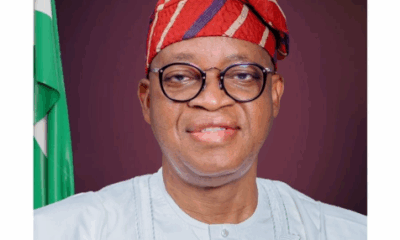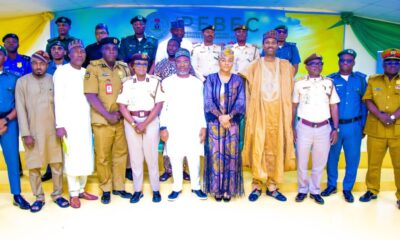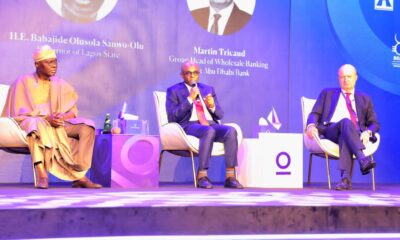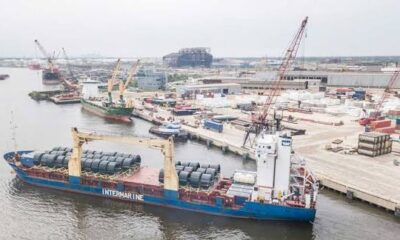Maritime
Experts Warn Against Politically Driven Projects as Port Trade Imbalance Deepens
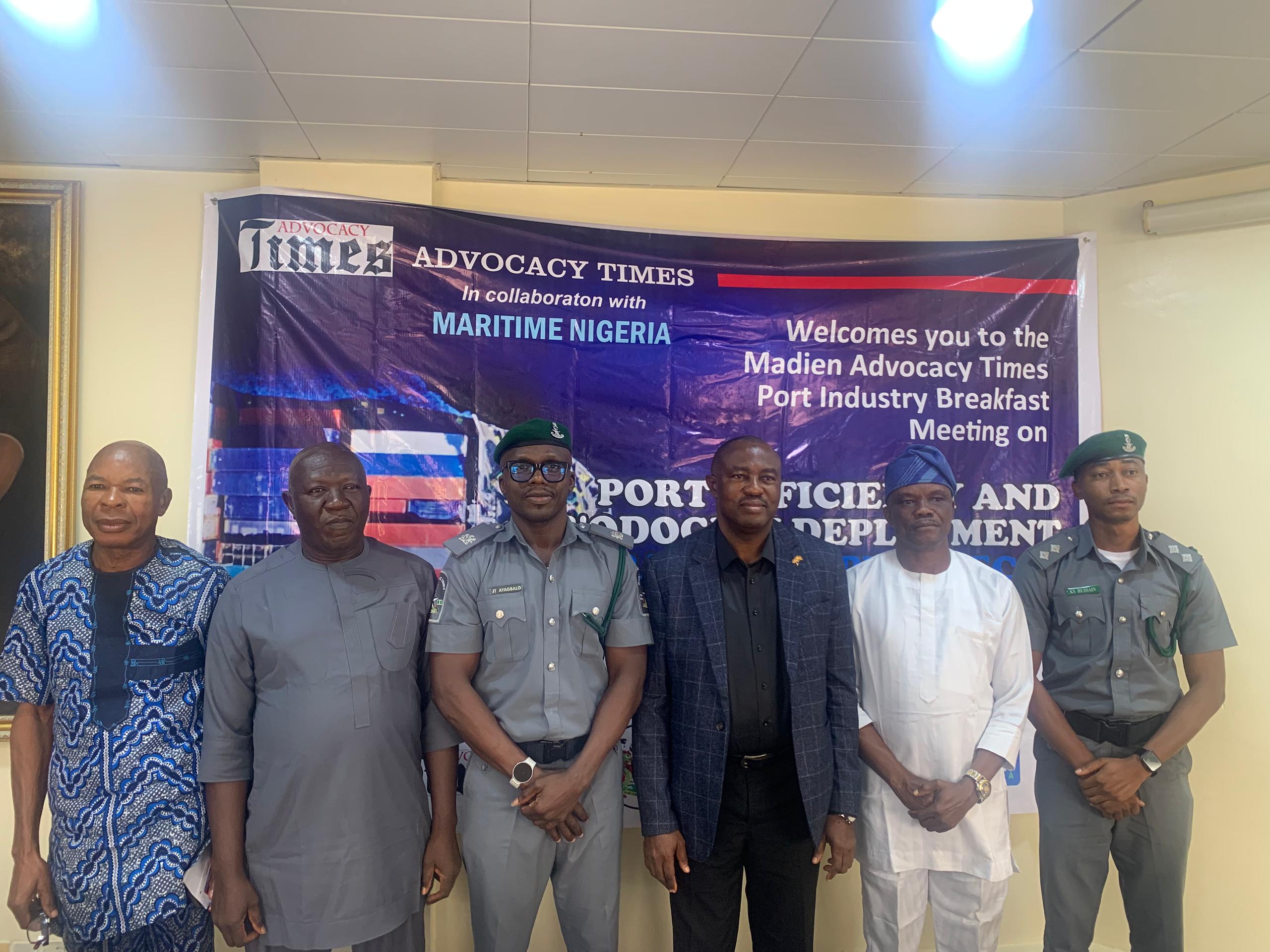
BY GBOGBOWA GBOWA
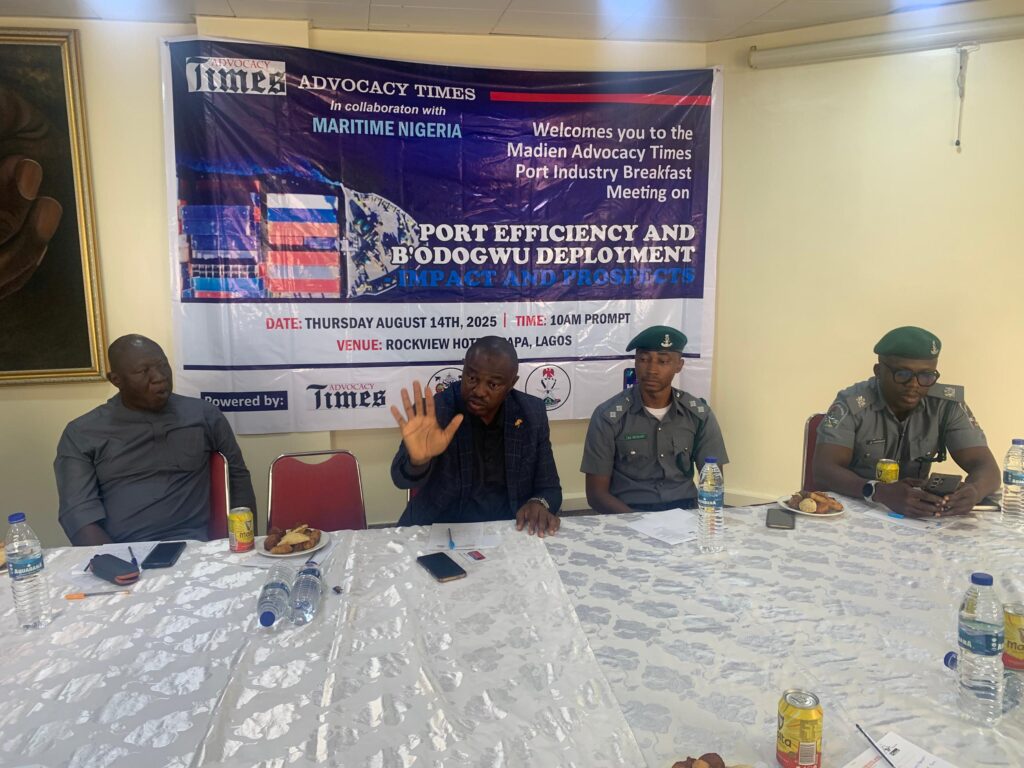
L-R: Ogbuokiri, Aniemu, Hussain, Tunde
Maritime stakeholders have sounded a clarion call for urgent reforms in Nigeria’s port infrastructure, warning that the country’s economic survival hinges on the efficiency and strategic development of its seaports and not on prestige driven projects.
At the Advocacy Times Port Industry Town Hall Meeting themed “Port Efficiency and B’Odogwu Development – Impact and Prospects”, Mr. Ismail Aniemu, Publisher of JournalNG, a consistent maritime magazine, delivered a sobering assessment of the nation’s trade ecosystem, cautioned that Nigeria’s growing dependence on imports—particularly Chinese goods flooding households is a direct consequence of inefficient port operations and weak local production.
“Port inefficiency isn’t just a maritime issue it is a national crisis. It affects everything from trade balance to household consumption and the viability of local industries.”
Aniemu criticized the proliferation of politically motivated seaport projects across coastal states, describing them as economic vanity projects lacking industrial justification. He urged federal and state governments to prioritize the rehabilitation of legacy ports such as Apapa, Tin Can, Warri, and Calabar, which once powered Nigeria’s maritime economy but now languish in neglect.

He drew parallels with Nigeria’s aviation sector, where underutilized airports serve more as political trophies than functional transport hubs.
“Port projects must be economically justified, not politically motivated. Nigeria’s trade future depends on it. We must not repeat the mistakes of the aviation sector in maritime,” he warned, citing the dormant Onitsha Port and the repurposed Sapele Port as examples.
Mr. Paul Ogbuokiri, Publisher of Advocacy Times, who echoed the urgency, emphasized that port efficiency is a matter of national interest. He lauded the Nigerian Ports Authority (NPA) under Dr. Abubakar Dantsoho for driving modernization, including the $1 billion port upgrade initiated by President Bola Ahmed Tinubu’s administration.
Ogbuokiri urged stakeholders to critically assess the impact of the modernization agenda, particularly its influence on cargo throughput and trade facilitation. He also spotlighted the B’Odogwu platform, a digital innovation aimed at streamlining clearance processes and enhancing transparency.
Also speaking, Khalid Salis Hussain, Assistant Superintendent of Customs and B’Odogwu Implementation Officer, explained that the platform was designed to address inefficiencies in legacy systems like NISIS II.
By enabling remote documentation and real-time tracking, B’Odogwu is helping to unlock the economic potential of Nigeria’s ports, Hussain said.
This is even as Mr. Tochukwu Nwanbueze, Secretary General of the International Freight Forwarding Association of Nigeria, called for transparency and economic logic in infrastructure planning. He emphasized that proximity to Lagos’s functional ports should be leveraged rather than duplicating facilities in nearby states.

